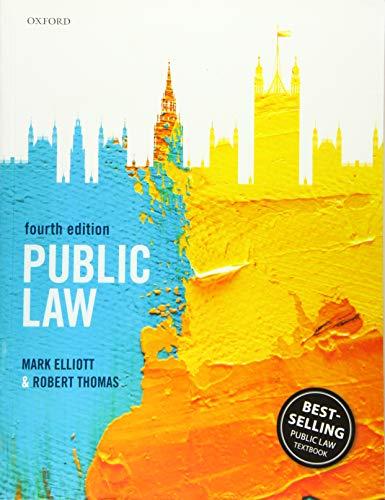Question
Tribunal Practice & Procedure Assignment - Case Fact Situation #1 Appeal of Mureen Walker (IAD) Mureen Walker is appealing the refusal by a visa officer
Tribunal Practice & Procedure
Assignment - Case Fact Situation #1
Appeal of Mureen Walker (IAD)
Mureen Walker is appealing the refusal by a visa officer to approve the sponsored application for landing of her spouse, Norman Walker.The basis for the refusal is that the visa officer was of the view that Norman Walker is not a member of the family class as he is a spouse who entered into a marriage primarily for purpose of gaining admission to Canada as a member of the family class and not with the intention of residing permanently with Mureen Walker, the appellant.
The visa officer came to that conclusion based on the immigration history of the applicant, the fact that the applicant had been involved in a common-law relationship with Joan Dudley, and that subsequent to the marriage of the appellant, Joan Dudley gave birth to the applicant's daughter.
In addition to that particular concern, there is a concern on the part of the visa officer that there was delay on the part of the appellant in filing the sponsorship undertaking, that the appellant and the applicant had not seen one another since their wedding and they had not taken any steps to see one another since their wedding.The inference that the visa officer drew was that this was not a genuine marriage.
The factual background to the appeal is that the appellant came to Canada in the domestic program and was landed in 1996.She has been single and working since then.She has worked in a number of jobs that have not been well-paying jobs, and it appears to be accepted by both parties that the appellant has not been well off financially.
She met the applicant while he was here on a visit.This was in 2009. It was a meeting that occurred at church.The appellant has known the applicant's mother and sister, and was introduced to the applicant through the applicant's mother.Subsequent to that visit by the applicant, the appellant and the applicant again met in 2010.This was a second visit to Canada by the applicant.It took place in the summer of 2010. The evidence of the appellant, which is uncontested, is that the friendship that had begun in 2009 had developed further.It developed to the point that there was some discussion in the course of that visit as to whether or not they would marry.The applicant decided that they would not marry at that time. He returned to Jamaica.
Subsequent to that the appellant left Canada went to Jamaica on a visit, and she married the applicant in December of 2010. There was some delay in the appellant filing her sponsorship.Eventually she did.That was in 2012.The applicant was called in for an interview, at which point the visa officer reviewed the applicant's immigration history, and questioned the applicant in particular about the birth of his youngest daughter.The officer refused the application, which then led to this appeal.
The applicant will provide evidence by telephone where he will be examined in chief and cross-examined.
The evidence from the appellant will be oral evidence about the surrounding circumstances of her relationship, the oral evidence of the applicant by phone, and a considerable amount of correspondence, as well as with the envelopes relating to that correspondence.
The respondent's case will be based on several facts: the applicant's sister has sponsored numerous family members to Canada, the applicant has made a previous application for an immigrant visa (which apparently was not granted), and the fact that the birth of the youngest daughter of the applicant casts doubt on the genuineness of the relationship between the appellant and the applicant.
It is notable that this applicant applied for and was granted visitor visas in the past on two occasions.There is no evidence in his behaviour on those occasions that he intended to remain in Canada.
The appellant, while not formally highly educated, is indeed intelligent, articulate, and insightful. Would she likely be the unknowing victim of a plan to bring in the applicant to Canada?
The correspondence predates the refusal.The timing of the correspondence is shown on the postmarks of the letters.The correspondence follows a logical chronological progression. It speaks of daily events, rather mundane events.
1. What is the theory of the case for each side?
2. What are the issues?
3. Groups and roles will be assigned by the Instructor.
Step by Step Solution
There are 3 Steps involved in it
Step: 1

Get Instant Access to Expert-Tailored Solutions
See step-by-step solutions with expert insights and AI powered tools for academic success
Step: 2

Step: 3

Ace Your Homework with AI
Get the answers you need in no time with our AI-driven, step-by-step assistance
Get Started


